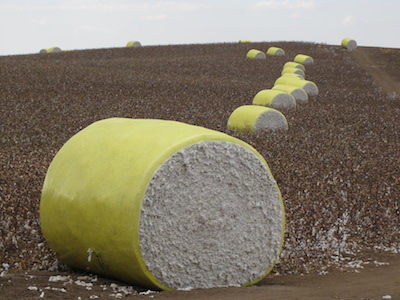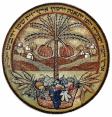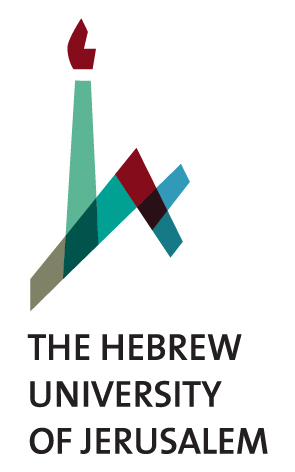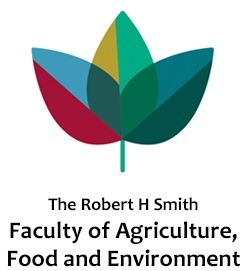Post date: 2022-04-20
Dear Friends:
On behalf of the ICGI steering committee, I am writing to update you on the status of our biennial research conference. Originally, our ICGI International Research Conference was scheduled for fall 2020 in Rehovot, Israel with Professor Yehoshua (Shuki) Saranga graciously agreeing to lead the local organizing committee. In January 2020, the COVID-19 pandemic began, and we were forced to postpone the conference to a later date. Since that time, the steering committee and Prof. Saranga's team has been in continual contact to discuss how to best navigate the ongoing situation.
During 2021, at the beginning of the Delta variant surge and prior to the emergence of the Omicron variant, we decided to tentatively re-schedule the conference for May/June 2022. Very recently, although the pandemic is easing in most parts of the world, we determined that all of the direct (health and safety) and indirect (travel restrictions) impacts of the current situation prohibit ICGI from holding the conference in 2022.
As such, this is our plan moving forward.
We will tentatively plan to hold the ICGI research conference in 2024. Prof. Saranga and his team will be given the opportunity to host the conference in 2024. The steering committee, in consultation with Prof. Saranga, will make a decision about Israel hosting in 2024 by the end of 2022.
In the absence of our biennial research conference, the steering committee is tentatively planning to expand our annual ICGI workshop at PAG in January 2023. The tentative plan is to hold an ICGI business meeting and social/networking event in addition to the traditional scientific program.
Please forward this information to any of your colleagues who might be interested to know about these updates.
On behalf of the steering committee, I want to thank you for your patience during these trying times. We are in unchartered water and learning how to navigate without any prior experience doing so. Please let me know if you have any questions, and be on the lookout for future updates during the remainder of 2022.
Regards,
Todd
___________________________________
B. Todd Campbell, Ph.D.
Research Geneticist
Chair, International Cotton Genome Initiative (ICGI)
USDA-ARS, Coastal Plains Soil, Water, and Plant Research Center
2611 West Lucas St.
Florence, SC 29501
Phone: 1-843-496-3751
___________________________________
Post date: 2021-04-26
As a result of the ongoing global, COVID-19 pandemic, the 2021 ICGI Research Conference will be postponed with a plan to hold a blended (in person and virtual) ICGI conference from February 27-March 4, 2022 in Rehovot, Israel. We will consult with Prof Saranga and the local organizers who will provide an update on the status of the COVID-19 situation in Israel by the last week of October 2021. We will also consider the impacts of the COVID-19 pandemic on international travel. No later than October 31, 2021, the ICGI steering committee will make a decision to: 1) proceed with the conference as planned (February 27 - March 4, 2022) or 2) organize a virtual ICGI conference to be held sometime in 2022.
___________________________________
Rehovot, Israel, Postponed until further notice
Photos: Yagev Kilman
Invitation
On behalf of the Hebrew University of Jerusalem, the Agricultural Research Organization and the Israeli cotton community we respectfully invite you to attend the 2021 International Cotton Genome Initiative (ICGI) Research Conference, to be held at the Robert H. Smith Faculty of Agriculture, Food and Environment, Rehovot, Israel.
The conference will begin with a welcome reception on the evening of August 2, 2021, continue with two days of lectures and poster presentations (August 3-4, 2021) and conclude with a professional tour (August 5, 2021) dedicated to cotton production and related aspects. Additional tours will be offered to participants.
We are looking forward to hosting you in Israel at the
2021 ICGI Research Conference!!!
Sincerely yours,
Yehoshua (Shuki) Saranga
Chair of the local organizing committee
Important Dates:
March 1, 2021:
Conference website open for registration and abstract submission
April 9, 2021:
Abstract submission closes
May 3, 2021:
Abstract submitters notified of decision
July 1, 2021:
Final program available
July 19, 2021:
Power point presentations provided
August 2-5, 2021:
ICGI Research Conference
Israeli Cotton – Long Staple with a Long Story
A millennia of tradition combined with inspiration for the future is the essence of Israeli cotton production. Cotton has been integrated with Israel's agricultural identity since Biblical times as evidenced by cotton fabric dated 100 BC excavated at Jason's Tomb in Jerusalem and the "Wool of the Vine" – a designation for the local cotton mentioned in the Mishnah - a re-script of the Jewish oral traditions dating back to the 2nd century AD.
The Kibbutzim, communal settlements based on egalitarian principles combined with broad-acre agricultural production in the rural periphery, were pioneers in modern day cotton production. At the forefront of global agricultural progress and state-of-the-art technology, it is these growers that adopted modern cultural methods and mechanization, professionalism in operations, and emphasis on continuous research and development.
Israel’s cotton production area in recent years has been ~8,000 hectares, which accounts for ~15% of the country’s irrigated field crops area. Despite being very small on the global scale, Israel’s cotton industry is a world leader in several aspects:
• Virtually 100% of Israel’s cotton is irrigated primarily using recycled water, and usually applied via drip irrigation, thus contributing to precious water conservation.
• Centrally orchestrated integrated pest management (IPM) measures, which combine pragmatic pesticide schemes with environmental consideration, have led to efficient control levels and sharply reduced infestation, costs and pollution over recent decades.
• These combined efforts have resulted in Israel's renowned record-breaking lint yields of 2 – 2.5 metric tons per hectare, coupled with world class quality.
• In recent years Israel's growers have been focusing on locally bred Extra Long Staple (Pima) and Long Staple inter-specific hybrid (Acalpi) cotton.
• Israeli cotton, a category of its own on the world market, has already surpassed international standards of yield and quality, bringing gratitude to farmers and a new vision to the textile industry.







